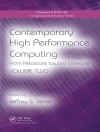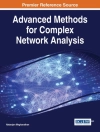Distributed computing paradigms for sharing resources such as Clouds, Grids, Peer-to-Peer systems, or voluntary computing are becoming increasingly popular. While there are some success stories such as Planet Lab, One Lab, BOINC, Bit Torrent, and SETI@home, a widespread use of these technologies for business applications has not yet been achieved. In a business environment, mechanisms are needed to provide incentives to potential users for participating in such networks. These mechanisms may range from simple non-monetary access rights, monetary payments to specific policies for sharing. Although a few models for a framework have been discussed (in the general area of a ‘Grid Economy’), none of these models has yet been realised in practice. This book attempts to fill this gap by discussing the reasons for such limited take-up and exploring incentive mechanisms for resource sharing in distributed systems. The purpose of this book is to identify research challenges in successfully using and deploying resource sharing strategies in open-source and commercial distributed systems.
สารบัญ
Economic Models and Algorithms for Distributed Systems.- Economic Models and Algorithms for Distributed Systems.- Reputation Mechanisms and Trust.- A Belief-based Trust Model for Dynamic Service Selection.- Reputation, Princing and the E-Science Grid.- Trust-oriented Utility-based Community Structure in Multiagent Systems.- Formation of Virtual Organizations in Grids: A Game-Theoretic Approach.- Towards Dynamic Authentication in the Grid — Secure and Mobile Business Workflows Using GSet.- Service Level Agreements.- Enforcing Service Level Agreements Using an Economically Enhanced Resource Manager.- Extended Resource Management Using Client Classification and Economic Enhancements.- Mitigating Provider Uncertainty in Service Provision Contracts.- Text-Content-Analysis based on the Syntactic Correlations between Ontologies.- Business Models and Market Mechanisms.- Cloud Computing Value Chains: Understanding Businesses and Value Creation in the Cloud.- A Model for Determining the Optimal Capacity Investment for Utility Computing.- A Combinatorial Exchange for Complex Grid Services.- Heuristic Scheduling in Grid Environments: Reducing the Operational Energy Demand.- Facing Price Risks in Internet-of-Services Markets.












